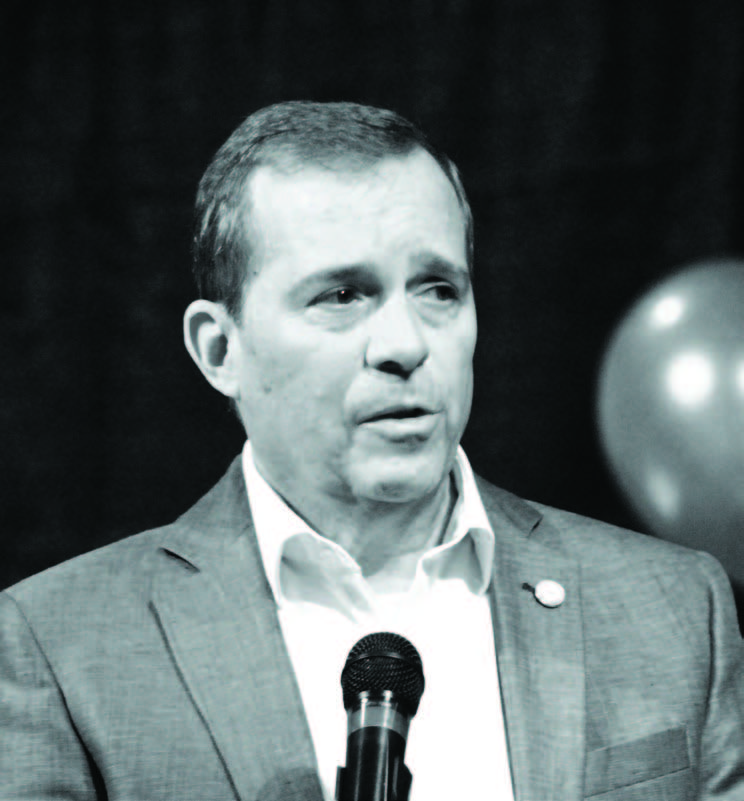Seeing red: Come June, NC’s election boards could look more Republican
- Details
- Tuesday, 14 January 2025
- Written by Sarah Michels, Carolina Public Press

 During Democratic Gov. Roy Cooper’s time in office, the legislature made six attempts to restructure election boards and take power away from him.
During Democratic Gov. Roy Cooper’s time in office, the legislature made six attempts to restructure election boards and take power away from him.
It appears new Gov. Josh Stein’s experience won’t be any different.
In late December, he was added to a 2023 lawsuit that originally challenged a now-repealed, previous attempt at taking away a governor’s power over election boards.
The case is now in Wake County Superior Court. An eventual ruling could be appealed all the way up to the state Supreme Court.
It’s part of a familiar story in state politics, one that’s been playing out since 2016.
And it all comes down to one thing: control. The party that controls election boards has a significant impact on their policy views, which may determine decisions in key cases like election protests and challenges.
Five times the GOP has tried to wrest that appointment power from Cooper. Each time, they’ve failed.
Now, this latest effort will cross from his administration into another.
Cooper spent one of his final days in office filing the supplementary complaint concerning the replacement of the previously challenged law with Senate Bill 382 – a law that would transfer appointment power from the governor to an unlikely member of the executive branch: the state auditor.
More specifically, the recently passed measure would allow State Auditor Dave Boliek to appoint nominees to the five-member State Board of Elections from a list submitted by the Democrat and Republican state party chairs. The board is mandated to include at least two members from each party. But with the auditor choosing the chairperson, it’s likely Boliek, a Republican, would pick someone from the GOP.
At the county level, it’s the same situation. Again, Boliek would also appoint the chair for each, potentially leading to the same partisan breakdown.
Previously, governors held appointment power and, predictably, the party of each governor enjoyed election board majorities while that governor was choosing board members.
While the courts have repeatedly ruled against the legislature, this time the outcome may be different. Republicans now enjoy a 5-2 majority on the state Supreme Court, which could increase the legislature’s chances of success.
Even so, former N.C. Supreme Court Justice Bob Orr cautioned against trying to predict how courts will rule.
“It’s obviously a stronger argument with the move to the auditor’s office because it stays within the executive branch (rather) than the other effort to have the legislature control it,” Orr said.
“So I would think that there’s a better chance of succeeding on the new structure than under the one that was being litigated.”
If the court upholds the new law, North Carolina’s election boards could look more Republican by early summer when statewide appointments to those bodies are made.
The legislature’s various attempts over the years to strip some, or all, of a Democratic governor’s power over these boards in favor of Republican control hasn’t been lost on Cooper.
In his updated complaint, he argued that the law unconstitutionally “treat(s) the state auditor and governor as if they were interchangeable” – a violation of separation of powers and the governor’s constitutional duty to faithfully execute laws.
“This blatant partisan restructuring of the State Board is — once again — unconstitutional,” he wrote. “It will undermine confidence in elections and it contravenes the democratic principles on which our state government rests. It cannot stand.”
And it hasn’t. So far.
A pair of 2016 laws struck down by the Wake County Superior Court would have abolished the State Board in favor of a Bipartisan State Board of Elections and Ethics Enforcement with four of eight members appointed by the governor and the other half by legislative leaders.
A 2017 law found unconstitutional by the N.C. Supreme Court would have required the governor to appoint eight members of the State Board from lists provided by the Republican and Democratic party chairs. The court ruled that this did not leave the governor with enough control over the views and priorities of the board. At the time, Democrats held a majority on the state Supreme Court.
Fast forward to 2018: The legislature passed another law reorganizing the State Board to nine members – four from each party and one unaffiliated member. Also, the law mandated that the chair of county boards had to be a Republican in presidential election years.
The Wake County Superior Court again blocked the law.
That summer, the legislature took the question to the people with a constitutional amendment based on the 2017 law. North Carolina voters overwhelmingly rejected it.
In 2022, Republicans flipped several seats on the state Supreme Court, gaining a 5-2 majority. Next session, the legislature passed SB 749. And later, SB 382.
Cooper said that Senate leader Phil Berger and former House Speaker Tim Moore’s “latest attempt to restructure the State Board of Election and county boards of election fares no better under our Constitution than their prior five attempts.”
(Photo courtesy of the North Carolina Supreme Court)

 How to resolve AdBlock issue?
How to resolve AdBlock issue? 














